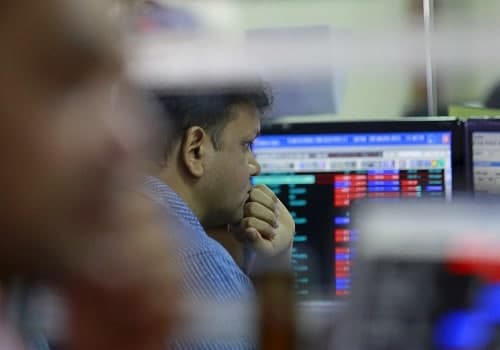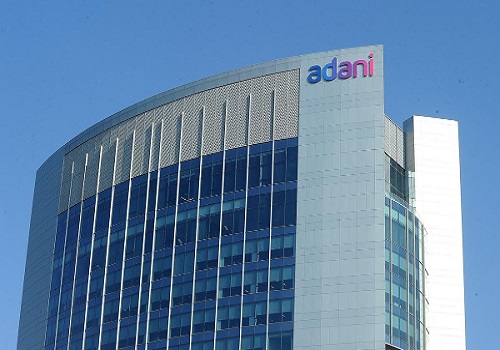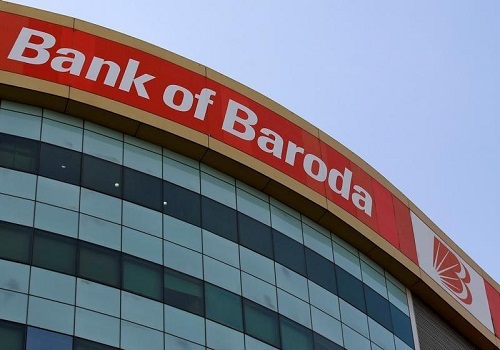Benchmarks extends decline into second straight day

Follow us Now on Telegram ! Get daily 10 - 12 important updates on Business, Finance and Investment. Join our Telegram Channel
Indian equity benchmarks extended their decline into second straight day and ended over half percent lower on Tuesday, as investors remained cautious ahead of crucial macroeconomic data announcements -- industrial production for February and inflation rate for March -- post trading hours. Key gauges made gap-down opening and stayed in red for whole day, as a private report stated that India's retail inflation likely sped up to a 16-month high of 6.35% in March, well above the Reserve Bank of India's upper tolerance band for a third straight month, in part due to a sustained rise in food prices. Sentiments remained down-beat with the research wing of rating agency Crisil in its latest report said that companies are not able to pass on the pressure from rising input costs to buyers, and this is likely to result in a compression in corporate profit margins for the March quarter (Q4FY22). It said operating profit margins for companies are set to fall by as much as 3 percentage points compared to the year-ago period, and up to 0.60 per cent as compared to the preceding December quarter.
Domestic sentiments remained negative in afternoon deals, amid report stating that a sharp rise in prices of essential commodities over the past few months coupled with the latest burden of steep hike in fuel rates have made life difficult for almost every section of the society across the country, with people finding it hard to manage their household budget. Adding more worries among traders, the World Trade Organization projected that Russia's war in Ukraine could almost halve world trade growth this year and drag down global GDP growth too. Bourses managed to trim some of their losses in late afternoon deals, taking support from the Reserve Bank of India’s (RBI) data showing that India Inc's direct overseas investment increased 8.5 per cent year-on-year to $3.34 billion in March 2022. The Indian companies had invested $3.1 billion in their overseas fully-owned subsidiaries (WOSs) and joint-ventures (JVs) in the same month a year ago. In the preceding month (February 2022), the outward foreign direct investment was $940.62 million. Some support also came with Union Minister for Petroleum and Natural Gas Hardeep Singh Puri’s statement that India is on its way to become a global energy superpower in terms of consumption and production.
On the global front, Asian markets ended mostly lower on Tuesday, while European markets were trading lower as rising bond yields weighed on growth stocks ahead of crucial U.S. inflation data and the ECB policy meeting. Amid elevated risks to global growth, investors continued to monitor developments on the war in Ukraine and the Covid-19 situation in mainland China. Back home, telecom industry stocks were in focus as the Telecom Regulatory Authority of India (Trai) has set the stage for next-gen spectrum auction by slashing the reserve price of 5G airwaves in the 3300-3670 MHz band by around 36 per cent. Insurance industry’s stocks were in limelight as the non-life insurance industry reported an 11 per cent growth in premiums to Rs 2.20 trillion in FY22 after a low single digit growth in FY21.
Finally, the BSE Sensex fell 388.20 points or 0.66% to 58,576.37 and the CNX Nifty was down by 144.65 points or 0.82% to 17,530.30.
The BSE Sensex touched high and low of 58,794.78 and 58,298.57, respectively. There were 9 stocks advancing against 21 stocks declining on the index.
The broader indices ended in red; the BSE Mid cap index fell 1.45%, while Small cap index was down by 1.47%.
The top gaining sectoral index on the BSE was Bankex up by 0.50%, while Metal down by 3.50%, Energy down by 2.78%, Realty down by 2.66%, Oil & Gas down by 2.47%, Basic Materials down by 2.16% were the losing indices on BSE.
The top gainers on the Sensex were Axis Bank up by 1.67%, Kotak Mahindra Bank up by 1.05%, Power Grid Corporation up by 0.82%, Maruti Suzuki up by 0.60% and ICICI Bank up by 0.59%. On the flip side, Tata Steel down by 2.76%, Tech Mahindra down by 2.26%, Wipro down by 2.16%, Bharti Airtel down by 2.15% and Reliance Industries down by 1.90% were the top losers.
Meanwhile, Reserve Bank of India (RBI) in its latest data has showed that India Inc's direct overseas investment increased 8.5 per cent year-on-year to $3.34 billion in March 2022. The Indian companies had invested $3.1 billion in their overseas fully-owned subsidiaries (WOSs) and joint-ventures (JVs) in the same month a year ago. In the preceding month (February 2022), the outward foreign direct investment was $940.62 million.
As per the data, of the total amount invested in March 2021-22, $1.31 billion was in the form of issuance of guarantee; $1.2 billion as loan and $866.93 million was infused in the form of equity. The RBI said the data is provisional and subject to change, based on the reporting by authorised dealer banks. Major investors who infused capital in their overseas ventures included Tata Communications $690 million in Singapore; Jindal Steel and Power $366 million in Mauritius; Wipro $204.96 million in Cyprus; and Jindal Saw $64.50 million in the United Arab Emirates. All of them invested money in their WOS companies.
Restaurant Brand Aisa and Lupin put in $141.34 million and $131.25 million in their JVs in Indonesia and the US, respectively. the data showed while Reliance New Energy invested $87.73 million in WOS in Norway; Mohalla Internet pumped $86 million in a fully-owned unit in Mauritius and ONGC Videsh infused $83.31 million in a joint-venture in Russia.
The CNX Nifty traded in a range of 17,595.30 and 17,442.35. There were 11 stocks advancing against 39 stocks declining on the index.
The top gainers on Nifty were Axis Bank up by 1.58%, Kotak Mahindra Bank up by 1.21%, Power Grid Corporation up by 0.76%, ICICI Bank up by 0.58% and IndusInd Bank up by 0.57%. On the flip side, Hindalco down by 5.77%, Coal India down by 5.04%, Grasim Industries down by 3.74%, Tata Motors down by 3.11% and Tata Steel down by 2.64% were the top losers.
European markets were trading lower; UK’s FTSE 100 decreased 30.34 points or 0.4% to 7,587.97, France’s CAC decreased 45.06 points or 0.69% to 6,510.75 and Germany’s DAX decreased 132.66 points or 0.93% to 14,060.12.
Asian markets ended mostly lower on Tuesday, tracking negative cues from Wall Street overnight as investors grew increasingly concerned about soaring Treasury bond yields and tightening monetary policy by the US central bank to counter inflation. Meanwhile, investors are awaiting crucial US inflation data and the ECB policy meeting. Concerns over Russia-Ukraine war and a surge in Covid-19 cases across different Chinese cities also weighed on market sentiments. Japanese shares settled lower, with index heavyweight technology stocks leading declines on worries about stretched valuations. However, Chinese shares ended sharply higher after the country's securities watchdog wants listed companies to repurchase their own shares and their major shareholders to support stock prices amid efforts by Beijing to stabilize China's sluggish stock markets.
Above views are of the author and not of the website kindly read disclaimer










Tag News

Weekly Market Analysis : Markets strengthened recovery and gained nearly 2% in the passing w...



More News

Daily Market Commentary 19 January 2022 By Mr. Siddhartha Khemka, Motilal Oswal









